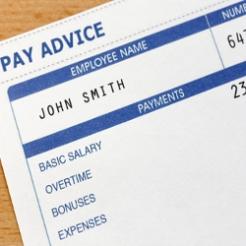Charities providing public services will struggle to pay the National Living Wage announced in the Budget unless government contracts are amended, charities warned today.
George Osborne said in today's Budget speech that a National Living Wage of £7.20 – 70p more than the current National Minimum Wage - will come into effect from April 2016 and will rise to £9 by 2020. Workers under 25 will still fall under National Minimum Wage rate rules.
In principle the living wage is something that the sector is in favour of, but sector leaders said that government contracts do not allow charities to pay more that the minimum wage.
Caron Bradshaw, chief executive of the Charity Finance Group, said: “The National Living Wage is to be welcomed but it begs the question: will government increase its payments to those providing public services? If not then this could seriously squeeze the budgets of those providing services to the most vulnerable in our society.”
Karl Wilding, director of public policy at NCVO, said that the living wage announcement was a “good thing”. But that because many charities won’t benefit from the reduction in corporation tax rate to help with the cost “we have got some thinking to do there”.
Last year Civil Society News asked the UK’s largest charities, those which appear in our Charity 100 Index if they paid the living wage and just one quarter said that they did. Three charities admitted to not being able to pay staff the living wage and the rest were unable to comment or chose not to respond.
Simon Morris, chief executive of Jewish Care, told Civil Society News that government funding for social care was not enough to enable them to pay the living wage.
He said: “Our aspiration would be that we are able to pay the living wage, I think the principle and the concept is absolutely right.
“The issue is that social care is underfunded by the state to the extent that while I think that it is an aspiration that most people in social care would have, the reality of being able to deliver it is not possible because of the amount of money that we get paid by local authorities.”
Employment Allowance raised
From next April the government has also announced that it will raise the National Insurance contributions (NICs) Employment Allowance from £1,000 to £3,000 “to support small businesses and charities to create jobs”.
It expects that this will help to pay for the introduction of the National Living Wage rate. The increase means that companies and charities will be able to pay four employees full time before needing to pay National Insurance Contributions.
Living Wage Foundation urges caution
The Living Wage Foundation warned that today’s announcement does not far enough.
Rhys Moore, director, Living Wage Foundation said: “We are delighted that the announcement made in the Budget this lunchtime will see over 2.5 million workers receive a much needed pay rise.
"This is a massive victory for Citizens UK and those communities, workers and business leaders who have campaigned for a Living Wage since 2001. We agree with the Chancellor that work should be the surest way out of poverty. However, this announcement raises several important questions.
“Is this really a living wage? The living wage is calculated according to the cost of living whereas the Low Pay Commission calculates a rate according to what the market can bear. Without a change of remit for the Low Pay Commission this is effectively a higher National Minimum Wage and not a living wage.
“Secondly, what about London? We have been working with the Mayor of London for seven years and there’s a London living wage rate that recognises the higher costs in the capital, currently £9.15 per hour. These changes will not help the 586,000 people for whom even the 2020 rate announced today would not be enough to live on now.
“Thirdly, what about the 2 million under-25s who are not covered by this announcement? To make sure workers in London and those under 25 do not lose out, we call on employers to join the group of 1,600 organisations that have already chosen be voluntary living wage employers.
“And, lastly, do the tax credit changes announced today mean that the living wage needs to be higher to make sure people have enough?
“The Living Wage Foundation, members of Citizens UK and the 1,600 accredited living wage employers look forward to an early meeting with the Chancellor to address these questions and help the millions of workers who deserve a pay rise.”








